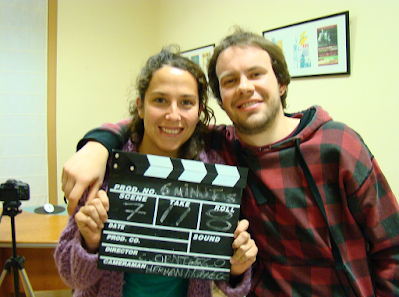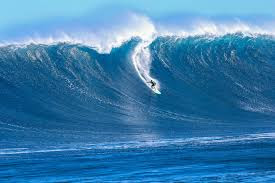Comienzo el día de Reyes con una sonrisa levantándome el primero de la casa y viendo como los regalos esperan que vayan llegando sus destinatarios. Estas semanas de fiestas navideñas son una bendición para los sanitarios en sus días de vacaciones y una maldición en los demás al asumir el trabajo de los ausentes. Jornadas de mucha presión en las que no faltan los imponderables como ayer con fallo informático toda la mañana de la mitad del sistema informático. Por eso entre trabajar a ciegas por la atención telefónica, a destajo por el tsunami continuo de pacientes y con las manos atadas en la espalda por la burocracia y las limitaciones informáticas, no queda otra que destapar una botella de creatividad y buen humor y brindar con ustedes. Eso o arder en el infierno. Pero no nos pongamos trágicos y brindemos mientras podamos y no nos confinen que poco nos queda viendo a nuestros vecinos ingleses que aunque técnicamente se hayan salido de la comunidad siguen viviendo en el segundo derecha.
Una de las preguntas que más me han hecho compañeros del mundo sanitario y pacientes tras leer mis artículos y reflexiones de los últimos meses es ¿qué podemos hacer? Y la respuesta no es inmediata dado que cada cual tiene que trabajarse la cuestión. El escenario de complejidad es tal que se precisará de toda la munición creativa disponible, lo que probablemente implique desde las clásicas manifestaciones, protestas y visibilizaciones por un lado, hasta formas más novedosas que incluyan actos profesionales síncronos, performances y colaboraciones con artistas o revueltas éticas o poéticas salvajes.
Un servidor seguirá dando paseos, una de las formas más potentes de protestar que existen, aunque pocos lo sepan. Escribiendo prosa y poesía en los rellanos y quizá acometiendo nuevos proyectos si encontramos las musas adecuadas. Pero tengo claro que no es una cuestión de sentar cátedra. En este asunto ya hay demasiado experto, unos auténticos y otros, los más, algo descafeinados.
Las dos cuestiones de más peso siguen siendo tomar conciencia de la proporción de desatino que vivimos y la segunda aprender a decir no. Es una cuestión de tiempo me supongo, pero muy gravosa según el peso que sostenga cada cuál. La ciudadanía, distraída como está por tantas cuestiones, no se imagina lo que están penando sus sanitarios de referencia. Tampoco pueden ver cómo de deteriorado está un servicio que antes de ayer creían de primera clase y resulta que lleva años al borde del precipicio. Pero hoy no les cuento más, disfruten de la ilusión del día de Reyes y si pueden pasear háganlo, les vendrá bien.
Camels, kings and many patients
I start the day of the Three Kings with a smile, getting up the first one in the house and seeing how the gifts are waiting for their owners to arrive. These weeks of Christmas holidays are a blessing for the health professionals on their holidays and a curse on others as they take over the work of those who are absent. Days of great pressure in which there is no lack of surprises like yesterday with computer failure all morning in half of the computer system. So between working blindly for the telephone service, piecework due to the continuous tsunami of patients and with your hands tied behind your back by bureaucracy and computer limitations, there is nothing left but to uncork a bottle of creativity and good humour and toast with you. That or burn in hell. But let's not get tragic and toast while we can and let's not be confined to seeing how little we have left of our English neighbours who, although technically out of the community, still live on the second flor right hand.
One of the questions I have been asked most by colleagues in the health care world and patients after reading my articles and reflections of the last few months is what can we do? And the answer is not immediate, since everyone has to work on the question. The scenario of complexity is such that all the available creative ammunition will be needed, which will probably involve everything from the classic demonstrations, protests and visibility on the one hand, to more novel forms that include synchronous professional acts, performances and collaborations with artists or ethical or poetic wild riots.
A servant will continue to take walks, one of the most powerful forms of protest that exist, even if few people know it. Writing prose and poetry on the landings and perhaps undertaking new projects if we find the right muses. But it is clear to me that it is not a question of teaching. There are already too many experts in this field, some authentic and others, the most, somewhat decaffeinated.
The two most important issues continue to be to become aware of the proportion of blunders we experience, and the second is to learn to say no. It's a question of time, I suppose, but it's very hard depending on the weight each one of us carries. The public, distracted as it is by so many issues, cannot imagine what their reference professionals are suffering. Nor can they see how deteriorated a health service they thought was first-class is, and which has been on the brink of collapse for years. But I won't tell you any more today, enjoy the illusion of Epiphany and if you can walk, do so, it will be good for you.
駱駝,國王和許多病人
自動翻譯,對錯誤感到抱歉。
我帶著微笑開始三個國王的一天,起家裡的第一個國王,看看禮物如何等待接收者的到來。聖誕節假期的這幾個星期是假期裡洗手間的福氣,當他們接替那些缺席者的工作時,對其他人也是個詛咒。在巨大的壓力下,像昨天一樣每天都在出現故障,整個系統的一半都在整個早晨出現了計算機故障。因此,在盲目地為電話服務工作,因患者持續海嘯而拼湊工作之間,以及由於官僚主義和計算機限製而使雙手被綁在背後,除了給您帶來一瓶創造力,良好的幽默感和敬酒之外,別無他物。那還是在地獄中燃燒。但是,在我們可以做到的同時,我們不要悲劇和敬酒,也不要僅僅局限於看到我們的英國鄰居所剩無幾,儘管他們在技術上不在社區內,但仍然生活在第二右邊。
閱讀我的文章和最近幾個月的思考後,醫療保健界的同事和患者向我提出的最主要問題之一是我們該怎麼辦?答案不是即時的,因為每個人都必須解決這個問題。複雜的場景使得將需要所有可用的創意彈藥,這可能涉及到從一方面的經典示威,抗議和知名度,到更新穎的形式,包括同步的專業行為,表演以及與藝術家或藝術家的合作,等等。道德或詩意的暴動。
僕人將繼續散步,這是目前存在的最有力的抗議形式之一,即使很少有人知道。如果找到合適的思路,在著陸點上寫散文和詩歌,或者進行新的項目。但是我很清楚這不是教學的問題。該領域已經有太多的專家,其中一些是真正的專家,而大多數是脫咖啡因的專家。
兩個最重要的問題仍然是意識到我們經歷的失誤的比例,第二個是學會說不。我想這是一個時間問題,但這取決於我們每個人的體重,這非常沉重。公眾因為如此之多的問題而分心,無法想像他們的參考廁所遭受了什麼苦難。他們也看不到他們認為一流的服務有多麼惡化,而且多年來一直處於崩潰的邊緣。但是,我今天不再告訴您,享受主顯節的錯覺,如果您可以走路,這樣做會對您有好處。
























